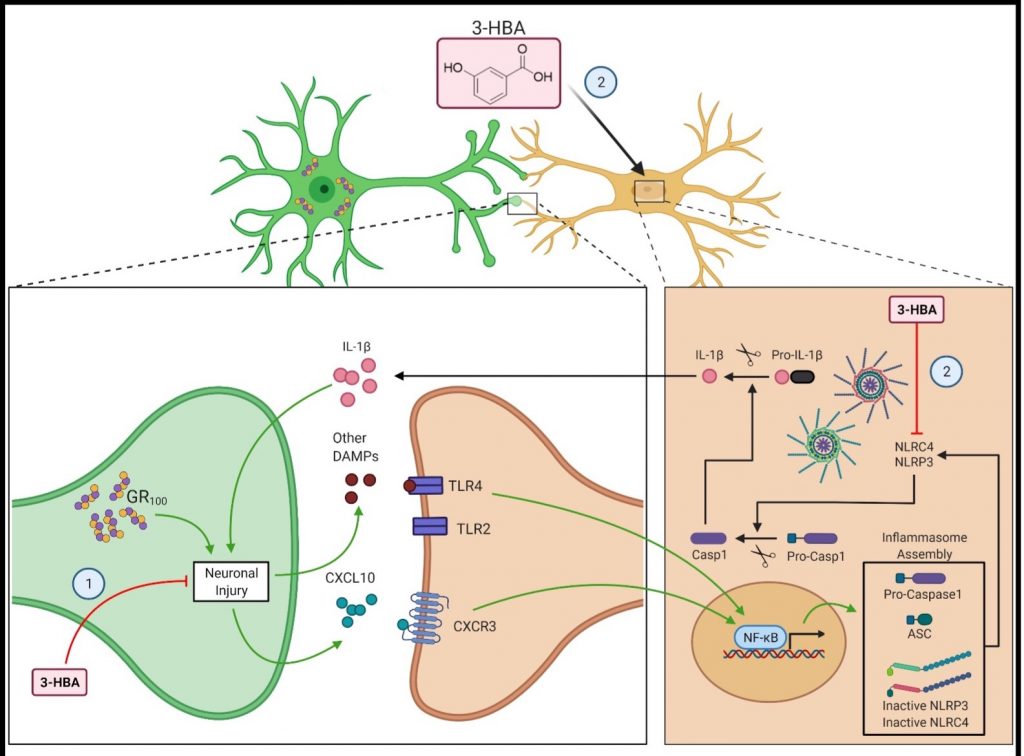Amyotrophic lateral sclerosis is a progressive, fatal neurodegenerative disease, involving corticomotor and corticospinal neuronal loss. This neuronal loss progressively results in paralysis, leading to respiratory failure and death. Neuroinflammation has been hypothesized to be a driving factor in disease pathogenesis; in fact, the two currently FDA-approved medications for ALS (Riluzole and Edaravone) leverage upon anti-inflammatory actions.
We are currently investigating the contributions of the NLRP3 inflammasome to the pathogenesis of ALS, and the self-propagating cycle of neuroinflammation and neurodegeneration. Through the ablation of the NLRP3 inflammasome, we have abrogated motor impairment, neuroinflammation, and mortality, in vivo in a model of ALS. We are further investigating how the NLRP3 inflammasome participates in ALS pathogenesis as well as the overall temporal relationship of neuroinflammation and ALS pathogenesis both symptomatically and pre-symptomatically, with the goal of developing pre-clinical therapeutic interventions.

